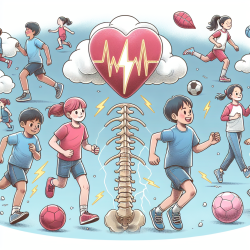In recent years, the impact of bullying on adolescent mental health has become a significant concern for educators, parents, and mental health professionals. The study titled "Association of In-School and Electronic Bullying with Suicidality and Feelings of Hopelessness among Adolescents in the United States" provides crucial insights into how bullying correlates with severe mental health outcomes like depression and suicidality.
Understanding the Research Findings
The study analyzed data from the 2019 Youth Risk Behavior Surveillance System (YRBSS), which included responses from 13,605 students aged 12 to 18. The findings revealed a significant association between both in-school and electronic bullying with depressive symptoms and suicidality. Alarmingly, those who experienced bullying in both settings had a higher risk of developing these symptoms.
- Depressive Symptoms: Bullied adolescents showed a higher prevalence of feeling sad or hopeless compared to their non-bullied peers.
- Suicidality: The likelihood of considering, planning, or attempting suicide was significantly higher among bullied youth.
- Diverse Impact: The study adjusted for various factors such as sociodemographic characteristics, abuse experiences, and lifestyle choices to understand the multifaceted impact of bullying.
Implications for Practitioners
The research underscores the need for early intervention strategies that focus on identifying signs of depression and hopelessness among bullied adolescents. Practitioners can enhance their skills by:
- Implementing Screening Tools: Regular screenings for depressive symptoms in schools can help identify at-risk students early.
- Creating Supportive Environments: Schools should foster environments where students feel safe to report bullying without fear of retaliation.
- Counseling and Support Services: Providing access to counseling services can help victims of bullying process their experiences and reduce feelings of isolation.
- Engaging Parents: Educating parents about the signs of bullying and its effects can facilitate better support at home.
The Need for Further Research
This study highlights the critical need for continued research into the effects of bullying on adolescent mental health. Future studies should explore the long-term impacts of bullying beyond adolescence and examine effective intervention strategies that can be implemented at both school and community levels.










